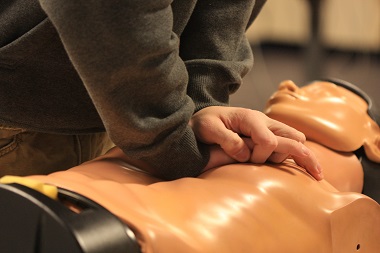 Most CPR certifications are good for two years. If you’re required to become CPR certified, you’ll need to renew that certification continuously. Give yourself a reminder and plan renewal training six months before your certificate expires. For those not required to maintain a certification for work, it’s important to keep your knowledge up-to-date, as you’re not likely dealing with CPR on a regular basis in between this semiannual renewal.
Most CPR certifications are good for two years. If you’re required to become CPR certified, you’ll need to renew that certification continuously. Give yourself a reminder and plan renewal training six months before your certificate expires. For those not required to maintain a certification for work, it’s important to keep your knowledge up-to-date, as you’re not likely dealing with CPR on a regular basis in between this semiannual renewal.
CPR Techniques Continue to Evolve
Mouth-to-mouth resuscitation first became an accepted method for reviving victims of drowning in the 1700’s, but it took nearly two hundred years for doctors to fully understand and start implementing chest compressions to victims of sudden cardiac arrest. The science behind saving lives with cardiopulmonary resuscitation (CPR) continues to evolve to this day. Doctors, medical scientists, and organizations like the American Heart Association gauge current practices and test techniques to ensure as many lives are saved as possible.
In order to stay current with the latest, most effective technique, it’s vital that you renew your certification every two years.
Practice Makes Perfect
If you’re not an emergency responder or in the medical field, it’s likely you haven’t even thought about CPR training since your last class. Practicing every two years at your renewal-training course will help commit the training to memory, but the physical act of practicing CPR is just as important. Developing muscle memory around the physical components associated with CPR will help ensure you’re able to react quickly and correctly in a crisis situation.
According to the American Heart Association, retention of CPR skills is a major issue and unused CPR skills may start deteriorating within six months of initial training.
You May Have To Save A Life!
Nearly 100,000 lives are saved every single year with CPR, but nearly two thirds of sudden cardiac arrest victims never receive CPR. Even if your training is getting a bit rusty, your ability to do chest compressions may very well save someone’s life. Only a small percentage of people in the U.S. hold active CPR certifications, and an amazing 70% of people don’t know what to do when CPR is needed, so it may be up to you to step in and help save someone’s life.
You never know when you’ll need CPR:
Where Do I renew my CPR Certification?
The CPR Consultants offer Basic Life Support CPR renewal classes in Richmond, VA as well as Raleigh, NC., but we also offer a variety of other course, as well as some online training; however, all official CPR certification training courses require hands-on manikin skills testing. Contact us if you’d like to schedule a CPR renewal or are interested in learning more about one of our first aid, CPR or other lifesaving courses.

